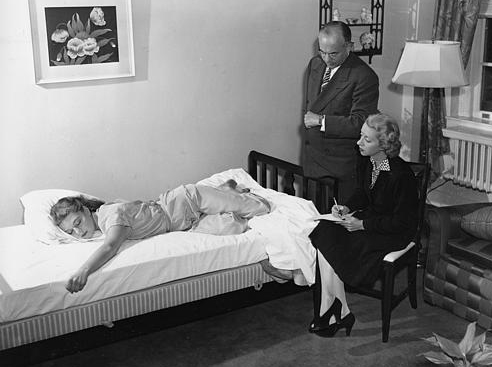Study: Disrupting sleep routine triggers cancer in mice

Researchers track the movements of a sleeping person in 1947. AP photo
Researchers have uncovered more bad news for people with irregular sleep schedules.
Disrupting a regular sleep routine is connected to higher risk of liver cancer in mice, say a team of researchers from institutions including Baylor College of Medicine, the USDA/ARS Children’s Nutrition Research Center at Baylor and Texas Children’s Hospital, the Dan L Duncan Comprehensive Cancer Center at Baylor and Florida State University. The results appear in Cancer Cell.
The findings are timely considering that disrupted sleep is becoming increasingly common in the U.S., especially among teens and working-age people. Liver cancer is also on the rise.